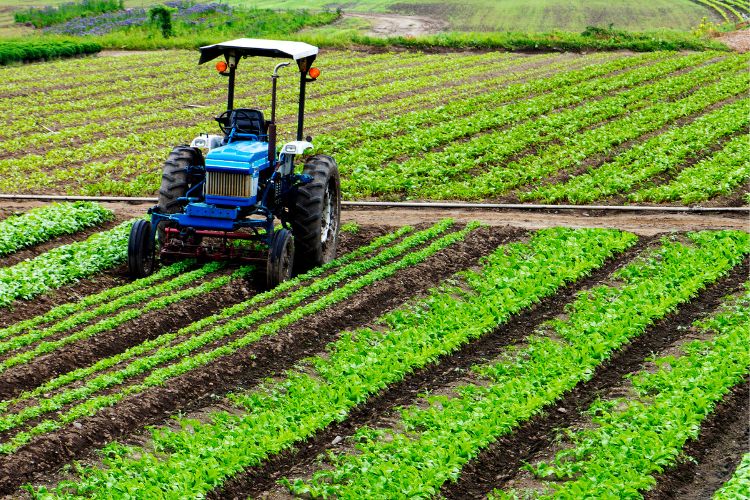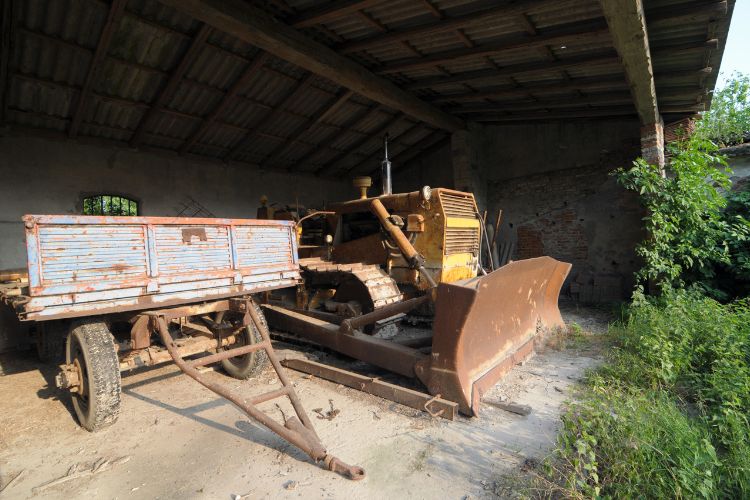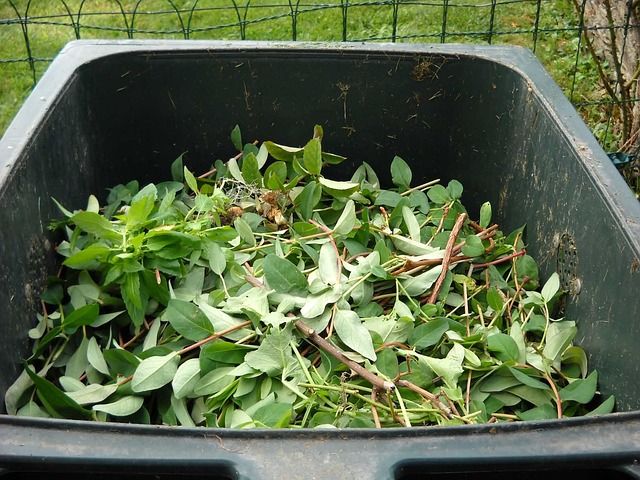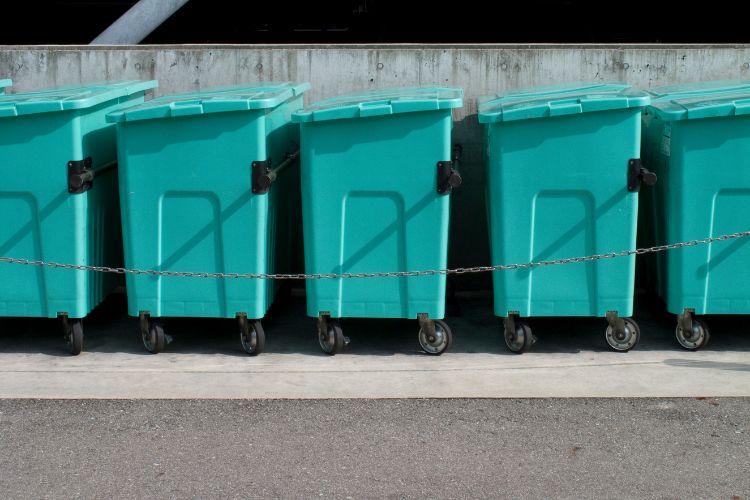From Field to Skip Bin – A Guide to Managing Agricultural Residuals in Australia
Australian farmers know the satisfaction that comes at the end of a successful harvest. But how do you deal with the inevitable agricultural residuals?
From overlooked crop leftovers to tired, old machinery, this article will delve into the challenges of agricultural residuals and explore how they can be safely and responsibly disposed of.
Everything is covered, from cleaning up your farm to contributing to a healthier environment. Let’s dive in!
What are agricultural residuals?
Agricultural residuals are the by-products or ‘leftovers’ from farming operations. They encompass a diverse range of materials you might not even consider waste at first glance.
Crop residues, like straw, husks, and shells that remain after harvest, manure from your livestock and poultry, discarded machinery that’s outlived its usefulness, and even used agricultural plastics all fall into this category.
While these materials may seem like just another part of the farming landscape, managing them effectively is a critical aspect of sustainable agriculture.
Five things you need to be aware of when dealing with agricultural residuals
Dealing with agricultural residuals is more than just a routine farm task; it’s an essential part of a sustainable agricultural strategy. We’ll guide you through different types of residuals, the benefits of skip bins, essential regulations, best practices for disposal, and crucial safety tips.
This will help you transform waste management from a daunting challenge into a smooth and seamless process.
1. Types of agricultural residuals
When we talk about agricultural residuals, we’re referring to a broad spectrum of materials produced as part of your everyday farming operations. Let’s break them down into a few key categories:
Crop residues
These are the parts of crops that are left behind after harvest. Examples include straws, husks, shells, and stubble. While they might seem like mere leftovers, these residuals can pile up quickly and need to be managed efficiently.
Livestock and poultry manure
If you’re raising animals, you’re inevitably dealing with a constant flow of manure. This organic material, while a potential source of nutrients, can become a significant waste management issue if not handled correctly.
Discarded machinery
Over time, machinery breaks down or becomes obsolete. These large and bulky items can’t simply be tossed aside — they need to be disposed of responsibly.
Used agricultural plastics
Farmers use various plastic items, from silage wrap and netting to pesticide containers. These materials present unique disposal challenges due to potential contamination and environmental concerns.
Each type of agricultural residual has its own disposal requirements, and managing them can seem daunting. That is where skip bins come into play, offering a versatile solution for handling these materials.
2. Benefits of using skip bins for agricultural residuals
Managing agricultural residuals efficiently can seem like a challenge. Thankfully, skip bins offer a simple and practical solution. Here are the key benefits of using skip bins for your agricultural residuals:
Ease of use
Skip bins are designed to be straightforward and user-friendly. You can easily load them with various types of waste, making them a one-stop solution for your agricultural residuals.
Versatility
Skip bins can handle a wide range of materials from crop residues to spent machinery, offering you a versatile waste management solution right on your farm.
Efficiency
With skip bins, you can collect large amounts of waste in one central location, saving you countless trips to disposal facilities.
Environmental responsibility
Proper disposal of agricultural residuals is essential for protecting our environment. Skip bins facilitate this process, making it easier for you to manage waste responsibly and reduce pollution.
Cost-effective
Renting a skip bin is a cost-effective waste management solution. It saves you the costs associated with improper disposal, such as potential fines or cleanup fees.
By employing skip bins, you’re not just opting for a convenient disposal method — you’re also contributing to a healthier and greener Australia.
3. Regulations for disposal of agricultural residuals
Disposing of agricultural residues isn’t just about finding the most convenient method. It is also about compliance with local and national regulations. These laws are designed to protect the environment and public health.
Here’s a basic overview of what you need to know:
Waste classification
Different types of waste have different disposal requirements. For instance, organic residuals like manure or crop residues may be compostable, while machinery or plastics require specific recycling or disposal methods.
Landfill restrictions
Not all waste can go to landfill. Certain materials, like hazardous chemicals or certain plastics, may be banned from general landfill disposal. Check with your local council for more information.
Transport regulations
There are rules governing waste transport, especially if it’s classified as hazardous. For example, you may need a special license or have to follow specific procedures. Again, check with your local council or our skip bin experts for more information.
Burning restrictions
Some agricultural waste, such as crop residues, is occasionally burnt on-site. However, burning restrictions may apply. Check with your local council and ensure no fire bans are in place.
Complying with these regulations is crucial to avoid fines and penalties and ensure that your farming practices are sustainable and environmentally responsible.
Using skip bins from a reliable provider like Best Price Skip Bins ensures your waste is handled in compliance with all relevant regulations.
4. Best practices for disposing of agricultural residuals
Understanding the best practices for disposing of agricultural residuals can make your waste management tasks simpler and more sustainable. Here are a few key strategies:
Segregate your waste
Not all residuals are created equal. Segregate different types of waste to ensure proper disposal and recycling, reducing the risk of contamination.
Utilise composting
Organic residuals like crop residues and manure can be composted on-site, creating a valuable resource for your soil and reducing the amount of waste needing disposal.
Responsible recycling
For items like machinery parts or agricultural plastics, seek out recycling opportunities. This will keep valuable resources in circulation and reduce the pressure on landfills.
Proper disposal of hazardous materials
Be aware of any hazardous materials you deal with, such as certain pesticides. These materials require special handling and disposal procedures.
Use skip bins
Renting skip bins from a reputable company like Best Price Skip Bins offers a convenient and compliant method for waste disposal, saving you time and potential headaches.
By adopting these best practices, you’re maintaining your property efficiently and contributing to a healthier environment and a more sustainable farming industry.
5. Safety tips for handling agricultural residuals in skip bins
Safety should always be a top priority when handling agricultural residuals, and using skip bins is no exception. Here are some key tips to ensure you handle your farm waste safely:
Wear appropriate PPE
Wear gloves, sturdy footwear, and other appropriate personal protective equipment (PPE) to protect yourself from potential hazards when handling waste.
Don’t overload bins
Skip bins have a maximum load limit for a reason. Overfilling can lead to spillage and make transporting the bin unsafe.
Avoid hazardous materials
Some waste, like certain chemicals or contaminated materials, should not be placed in skip bins due to their hazardous nature. Always follow regulations and guidelines regarding these materials.
Practise proper lifting techniques
When lifting heavy items, use proper techniques to avoid injury. If an item is too heavy, ask for assistance or use suitable lifting equipment.
Choose the right skip bin size
Skips come in various sizes. Choose one that suits your needs to avoid overcrowding and ensure easier and safer waste management.
Embracing responsible agricultural residual disposal with Best Price Skip Bins
As a farmer, dealing with agricultural residuals is an inevitable part of the process. From crop residues to livestock waste, these by-products present both challenges and opportunities.
Remember, the correct disposal of agricultural residuals isn’t just about cleanliness or convenience. It is about preserving our soil, water, and air quality for future generations.
With Best Price Skip Bins, you can actively create a sustainable and environmentally responsible Australia. Whether it’s a one-off clean-up or a regular service, we’re equipped to make your waste disposal process as efficient as possible.
We offer peace of mind, valuable time savings, and an efficient service. Get in touch with us today for more information!






